Wyniki wyszukiwania
57 results for query Financing
Reports(21)
-
Heating transformation 2030 | Small district heating systems

87.5% (463 out of 529) of all district heating systems in Poland do not have the status of efficient systems. They must change this if they want to maintain access to public aid in the future and continue to provide Poles with heat at a reasonable price.
23.11.2017 -
The last bell for district heating in Poland

District heating in Poland urgently needs to be modernised. Negotiating transitional periods for EU legislation has so far allowed difficult decisions to be postponed. However, the deadlines are running. A comprehensive review of district heating systems is necessary.
24.10.2017 -
Revenues from ETS auctioning as source of financing for low-emission modernization in Poland
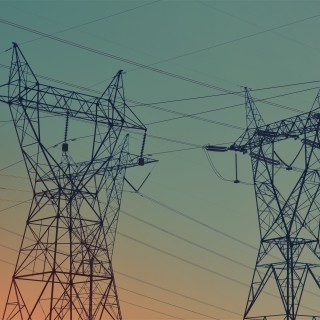
Revenues from auctioning of the national pool of ETS allowances may become the major source of financing for low-emission modernization of energy sector in the coming decade (2021-2030).
8.6.2016 -
Options for integration of the Polish energy market within the European Union

Forum Energii examined how the integration of the energy market, one of the priorities of the European Union, will affect wholesale electricity prices in Poland. Depending on the option to integrate markets (with which country the merger takes place and what is its capacity), the wholesale price of electricity in Poland may fall by up to 5%, i.e. by about PLN 8 per MWh.
21.3.2017 -
Efficient use of Modernization Fund

On October 24, 2014, the European Council established the Modernization Fund (MF) for years 2021–2030 supplied with revenue from the sale of 2% of the total pool of CO2 emission allowances. The instrument is to support the modernization of power system and the improvement of energy efficiency in EU Member States, where GDP per capita in 2013 was lower than 60% of EU average (in nominal terms).
25.5.2015 -
Electricity and industrial competitiveness
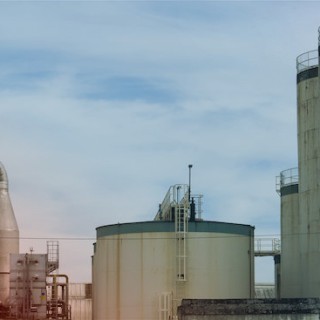
Industrial competitiveness is at the centre of the Polish debate about the future (and the logic) of climate and energy policy. There is a widely held opinion that low prices are the most important condition for a thriving industry.
19.12.2014 -
Why compensations of power prices can cause more harm than good

This is the first time such an unexpected turn of events has occurred in the energy sector. The government lost control of the strategic economy sector and seems surprised with the increase in prices and rising import of coal, gas and electricity. This unexpected situation has led to huge astonishment at a time when elections are imminent.
21.1.2019 -
COP24 - what next with the climate policy in the EU?

The practical impact of the climate summit agreements on EU and Polish policy is rarely appreciated. Meanwhile, climate policy will be an important point of reference in discussions on integrated national plans, national long-term strategies, or when setting the financial framework for 2021-2027. What are the conclusions of COP24 and, above all, what to expect this year?
22.1.2019 -
Good heating practices from Denmark and Germany. Conclusions for Poland

Currently Poland faces a choice of long-term action plan in heating. As part of the Clean Heat project Forum Energii took a deep insight into experiences of Denmark and Germany, which significantly modernized their heat supply systems and improved air quality at the same time.
23.1.2019 -
Flexibility of the Polish power system | Diagnosis, potential, solutions

Flexibility of the power system means its ability to maintain uninterrupted operation under conditions of rapid and huge fluctuations in electricity consumption generation. It is an inherent part of the system design and control of its operation. In the analysis, Forum Energii puts forward solutions supporting the improvement of the national power system flexibility. In addition to reducing the costs of the power sector and the improvement in quality and reliability of the electricity supply, their objective is to reduce emissions by the power sector.
12.2.2019 -
Clean heat 2030 | Strategy for heating
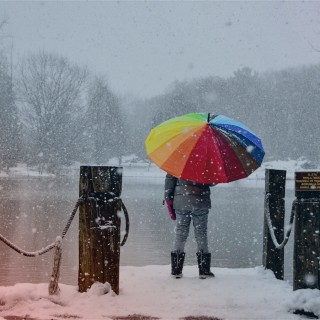
In the report "Clean Heat 2030. Strategy for heating" Forum Energii examined how to make heating no longer a source of smog in Poland by 2030 in a cost-effective and socially acceptable way. According to the analysis, health costs of pollutants can be reduced by 50% within a decade and dust emissions from individual heating by 91%. At the same time, CO2 emissions from heating will fall by 30%.
17.4.2019 -
Small steps to big changes | Impact of the "Clean Energy..." package on power sector

We are starting to implement new EU energy regulations. Will the "Clean energy for all Europeans" package heal the Polish energy sector and give it an impulse for development? How can the energy consumer benefit from the changes? In Forum Energii's report "Small steps to big changes", we analyse the provisions of the Package and their consequences for Poland.
12.9.2019 -
Capacity market for review | Analysis of the results of three auctions

The three capacity auctions for 2021-2023 are behind us. What is the result? Has it been possible to encourage manufacturers to make new investments? Does the capacity market support diversification of the mix? How much does the capacity market cost? And finally, do the new EU regulations concerning emission standards mean the end of the capacity market in Poland?
22.10.2019 -
How to reach an agreement with Brussels on clean heat financing in Poland
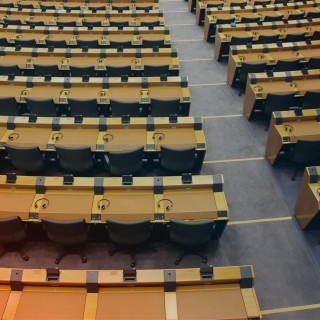
The entire heating sector in Poland, both in district heating systems and individually heated houses, consumes as much as 38% of this fuel. Therefore, it is easy to calculate the potential contribution of the heating transition to the reduction of CO2 emissions. The changes will benefit both the climate and citizens. Today in Brussels, orum Energii presents the Clean Heat 2030 report and demonstrates how improving air quality can help to save the climate.
13.11.2019 -
Anti-smog roadmap for Żywiec | Clean heat by 2030
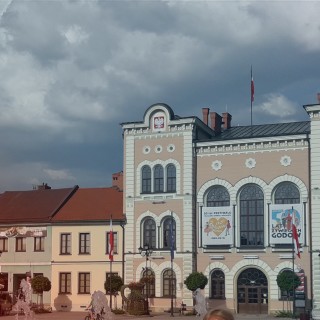
The challenge of fighting the coronavirus and the upcoming spring are distracting public attention from the problem of smog. But it will not disappear and as the boomerang will return in a few months with the start of the heating season. Especially to the towns and cities - where, like in Żywiec, more than 80% of heating energy comes from coal. In the latest report of the Forum Energii Anti-Smog Roadmap for Żywiec. Clean heat by 2030." we indicate what steps should be taken to get rid of smog by 2030. Now the report is available only in Polish, but English version will be published soon.
21.4.2020 -
How to fill the coal gap? 43% RES by 2030?
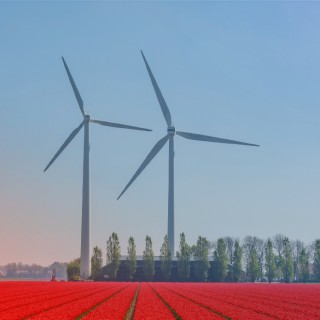
Poland has started phasing out coal. But while production is decreasing, CO2 emission allowances are becoming increasingly expensive. After 2025, when public support for outdated coal blocks runs out, energy companies will want to shut them down. With a decade, at least 10 GW of power may be lost from the Polish power system. How can this gap be filled?
26.10.2020 -
The district heating company of the future

Heat in Poland becomes more expensive. This is a result of an outdated business model in district heating, which rewards the company for as much heat production as possible and does not encourage to modernize the infrastructure. Meanwhile, consumers want to pay as little as possible for energy and heat. One of the key elements of the game for lower bills and lower CO2 emissions is becoming energy efficiency of heating systems and buildings. This completely changes the market conditions in which heating companies have to find themselves. If we do not want them to collapse - it is necessary to implement a new business model in district heating. Forum Energii writes about how it could look like in its latest report.
16.9.2021 -
Ready for 55%. A guide to financing the energy transition from 2021
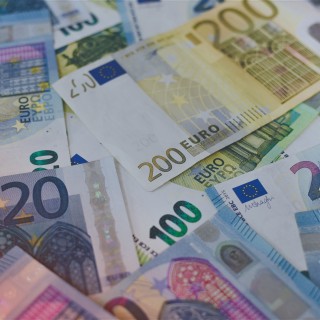
It’s PLN 560 billion [EUR 124 bln]. This is the amount Poland can allocate for the energy transition and phaseout of coal thanks to EU membership. This is a historic opportunity to shift the Polish economy—including the energy sector—to the low-carbon track and develop new industries. Although last year the Polish government declared the intention to pursue climate neutrality in line with EU policy, Poland’s decision-makers are anxious that the country will not be able to handle the challenge of decarbonisation. At the same time, the government’s relations with EU institutions are deteriorating, making talks about the EU funds difficult. So then, what resources are at stake?
9.11.2021 -
Clean heat as an engine for the Polish economy
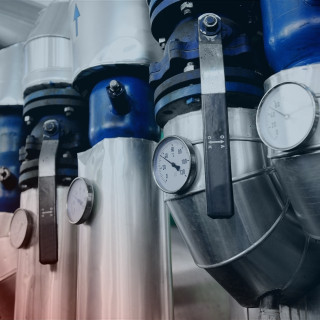
A new approach to heating is needed in Poland. It is currently a neglected area where the necessary changes and modernisation have been postponed for years. As a result, every winter we have the most polluted air in the European Union and the Polish district heating system is on the verge of collapse. The costs and scale of the investments needed are enormous, but further delays will lead to an even higher prices.
5.4.2022 -
Cutting energy bills before winter

The upcoming winter will be difficult for many Polish households due to high costs of heat and electricity. In the latest report by Forum Energii, more than 30 concrete measures are listed. They can be implemented easily and at a low (or even none) cost before the heating season. This will reduce bills and improve the country's energy security.
31.8.2022 -
Poland's support in the energy crisis. Last call for NRP

If Poland does not come to an agreement on the NRP in the coming months - it will be too late for sensible spending of the money available to the country. By the end of June, the Polish government may present to the European Commission changes to the spending plan for the National Recovery Plan - completed with investments to increase resilience to the energy crisis. Consultations with the EC are just starting. This is the last bell for Poland to reach for loans and grants under the the Recovery and Resilience Facility and the REPowerEU plan. How to change the Polish NRP to make it a practical response to the energy crisis?
3.4.2023
Insights(31)
-
Power deficit in the Polish power system in August 2015
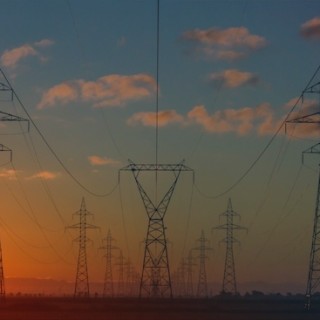
The heat wave which affected the whole country from the beginning of August, in combination with the hydrological conditions of the main rivers, resulted in deterioration of the operating conditions of power generation equipment and power networks in Poland. As a result, PSE SA (Polskie Sieci Elektroenergetyczne, the Transmission System Operator) imposed various levels of limitations of power supply for industrial consumers until the end of August. Such measures were taken for the first time in many years.
23.9.2015 -
A low-emission economy is a global model

The Paris Agreement is not only a success for the negotiators, but above all evidence of the growing interest in the development of a low-emission economy. According to the International Energy Agency, within 5 years RES capacity will constitute 60% of all power in the energy sector. Despite the fact that we are only talking about capacities and the real production of green energy is lower, it is a strong signal concerning the trend of energy production in the world.
16.11.2016 -
Is isolationism profitable?
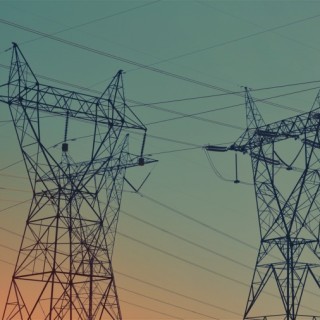
Below you will find opinion on the article concerning the text entitled "Import of cheap energy – higher costs for consumers" by Prof. Władysław Mielczarski, Ph.D. Eng., Łódź University of Technology, BiznesAlert, published on the CIRE website (in Polish) on the September 7, 2015.
16.9.2015 -
An EU anti-smog fund for Poland

Poland has some of the worst air quality in the EU. But fighting smog is expensive. The Modernisation Fund set up as part of the Emissions Trading Scheme could help here.
19.9.2018 -
Benefits from rising prices of CO2 emission allowances

Discussions about rising prices of CO2 emission allowances will not remain silent. When buyers pay more, the state budget gains. Poland should allocate these funds for low-carbon modernisation.
6.11.2018 -
Polish Energy Policy until 2040 | First commentary of Forum Energii
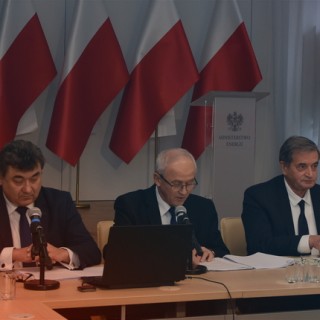
Today, the Ministry of Energy presented the State Energy Policy outline for consultation – a welcome announcement. We consider this a basis for public discussion, in which energy and environmental experts, business representatives and the broader society alike should participate. Energy affects all of our lives. Particularly at times of high energy prices we have to think about what to do next.
23.11.2018 -
COP24 - chance for Poland

During COP24, Poland will take over the presidency in global climate negotiations for a year. We will organize a summit for 200 million PLN for the fourth time - as the only one in the world. Success will give us prestige and prove that we can lead the global debate, while failure could result in distaste.
3.12.2018 -
How much is 550 g after the end of the European negotiations?
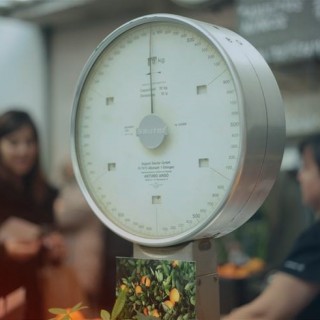
Negotiations on the EU regulation on the electricity market were concluded on December 19, 2018. For Poland it was the last and most controversial element of the Winter Package. Since 2017, the European Parliament and the Council discussed how to formulate regulations introducing a CO2 emission limit of 550 g/kWh of electricity produced. They are to apply to the capacity markets.
21.12.2018 -
Energy and climate targets until 2050

The national energy and climate plans and their assessment (objectives, instruments, financing) by the European Commission are a major qualitative change in the process of developing and implementing the EU energy and climate policy. Until now, energy and climate targets have been scattered across many pieces of legislation and are now linked by the overarching objective of climate neutrality in 2050 resulting from the Paris Agreement.
21.3.2019 -
Power sector after the elections | Three tasks for the new government

The Polish energy sector is at a turning point. What will the next government find after the elections in the autumn? It will inherit not only electricity market, but also smog.
19.6.2019 -
Will the revenues from CO2 emissions disappear into thin air?

Low emission energy transition will cost up to 200 billion EUR in the years to come. This impressive amount may suggest that Poland cannot afford to invest in the power or heating sectors. Meanwhile, building a safe and reliable system is crucial for citizens, economy and climate. It is high time to look at potential sources of financing for low-carbon modernisation, and make sure they do not vanish into the budget.
28.8.2019 -
The last auction of this kind...

The fourth capacity market auction was held on the 6th of December 2019. Although there were some long-awaited new projects, the Santa Claus gift (which the capacity market support could be) was offered primarily to the existing coal-fired units, which in most cases decided to modernize. They were allowed to participate in the auction for the last time, as the European Union regulations will not allow such participation from next year.
11.12.2019 -
RES auctions in Poland | Results and trends

The RES auction marathon is behind us and we finally know the final result. Twelve auctions for various technological baskets, for new and existing installations, were held during three weeks. The contracted 90.3 TWh of new, green electricity for 15 years is worth PLN 20.2 billion. As much as 86% of this volume will be purchased at prices lower than those currently prevailing on the wholesale electricity market. This is another proof that renewable energy sources can compete with conventional units without additional support.
23.12.2019 -
Just Transition Fund - we will benefit, but under conditions

The European Commission presented a draft regulation on the Just Transition Fund. This is an instrument to bring the UE closer to achieving climate neutrality in 2050 and prevent possible social exclusion. Although Poland proposed the creation of the fund, we missed the discussion about its shape.
15.1.2020 -
Fighting on the wrong front. Polish gvernment intends to subsidise energy consumption instead of fighting energy poverty

The Ministry of State Assets announces subsidies to energy bills for people earning less than 5 000 net per month. The reaction to the increase in electricity prices in Poland has shown that politicians are so afraid of this subject. However, they have no good idea how to solve it.
3.3.2020 -
2020 RES target: what if Poland does not reach it?

Poland, along several other European Union Member States, is unlikely to meet its national 15% renewable energy target for 2020 on time[1]. However, despite the possibility to impose sanctions for failure to meet national obligations, including financial penalties, the European Commission is not interested in punishing countries just for the sake of punishment. The potential consequences for countries that are lagging behind should be understood rather as a means of mobilising them to catch up, but also to increase their ambitions to meet the second of the EU RES targets - the one set in the 2030 horizon.
17.3.2020 -
Investment in the energy sector as a remedy for the crisis

After a few weeks of the pandemic in Poland, we know for sure that the virus will infect the economy, even as we finally get rid of it ourselves. We need to act decisively right now. But we also need to think about economic recovery, in which the low-carbon transformation of energy has to take a central place. This is the time for bold decisions, so far postponed. A strategic rebuilding of the sector must be announced today to help society emerge from the crisis and provide long-term benefits.
1.4.2020 -
The EU is ready to co-finance our energy transformation ― what does the Polish government have to say?
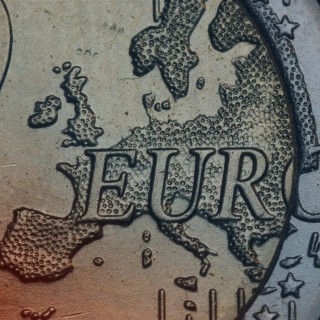
On 17 July the European Council will launch the final negotiations on the EU budget, unprecedented in scale and intended to pull the EU out of recession and give it a new boost. Since December 2019 Poland has been part of the EU discussions, trying to distance itself from climate neutrality in 2050. Although all other Member States agreed to it. For the time being, however, it seems that we may be one of the countries that will benefit most from the distribution of funds―we may gain over PLN 140 billion for the energy transition alone. Yet, the money will not be granted unconditionally. Poland needs to have a plan in place to achieve the EU's common goals―to commit to climate neutrality and to contribute to a 40% or even 55% reduction in emissions by 2030.
15.7.2020 -
Five energy projects that must happen in 2021

The future begins today, not tomorrow. The year 2020 was unusual in many ways, so many people will be relieved that it is now ending. But in terms of the energy transition, it was a watershed year. The European Union reached agreement on the European Green Deal. In Poland, the government and labour unions openly admitted that Poles need to talk about the end of the coal era. The energy sector in the country is at a crossroads and it is time for it to choose the right path for its further operation and development in 2021.
28.12.2020 -
EU Recovery Fund: 3 things Poland needs to do for the mechanism to bring real change

The National Recovery Plans are built on credit. The investments we design today must serve future generations—our children—because we all will be paying it back until 2057. It is based on concrete reforms, changes that need to happen in order to achieve the intended objectives. The consultations on the recovery plan in Poland is now coming to an end. How should we change it so that the money pays off in the future? In this opinion, I refer to the Green Energy and Energy Efficiency Component.
31.3.2021 -
The purpose of the EU-ETS and its pending reforms

Since the beginning of the year, CO2 emission allowance prices have risen by 70%, from EUR 30 to over EUR 50 per tonne. The rate of this increase has again triggered discussion in Poland on the purpose of the Emissions Trading System’s (EU-ETS) existence. Meanwhile, the EU discussion on the ETS, which is due to begin shortly, will not be about whether to abolish the system, but how to reform it so that the EU can achieve its decarbonization goals. Carbon pricing will be the most important tool for achieving the EU's 55% emissions reduction target in 2030. In this text, we explain the system’s basic operational principles and highlight expected discussion topics and possible upcoming changes.
2.6.2021 -
Poland needs 2 GW of new photovoltaic capacity annually - that's why prosumers should be supported

The government is announcing changes in the support system for prosumers. The combination of the current operational support scheme (a version net-metering, called “rebates”), subsidies in the form of the “Mój Prąd” program and tax credits resulted in rapid development of solar energy in Poland. Within a few years the installed capacity in micro-installations increased from 200 MW to 3.3 GW. Security of energy supply in the summer has strengthened, CO2 emissions have been reduced and the generation mix has become more diversified to some extent. Citizens have fallen in love with renewables for good. So what’s next?
23.6.2021 -
10 steps to overcome the energy crisis

The prices of coal, gas, and CO2 are reaching record levels while the price for electricity is galloping, causing panic among politicians, energy consumers, and institutions responsible for maintaining Poland’s energy security. There is a state of emergency in the Polish energy sector caused by, among other things, the situation on the energy source market, but not only. The country is also bearing the consequences of many years of postponing necessary modernisation decisions. It is time to take urgent actions that match the situation.
8.12.2021 -
E-mobility - a chance for further development of economic cooperation between Poland and Germany

The Polish and German economies work in a system of interconnected vessels.Even if the echoes of the visit of the new German Chancellor Olaf Scholz to Poland suggest that there are many issues that divide us, there are also those that unite us. For instance the development of electromobility may raise this cooperation to a higher level, but it is necessary to prepare strategically for it. The focus should be on cooperation in the area of technological developmentbattery production and recycling, joint planning of infrastructure, as well as exchange and sharing of knowledge, especially in the area of innovation.
20.12.2021 -
Is the Kremlin turning off the gas tap? Time to exclude gas and coal from households
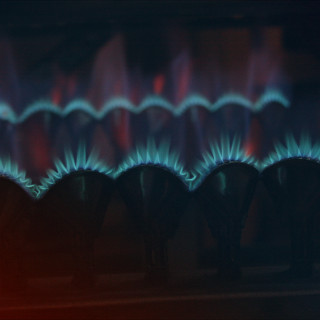
How to prepare households for an energy war with Russia? Gazprom is suspending gas supplies to Poland under the Yamal contract. This is no great surprise. At the end of this year, Poland was going to give up buying Russian gas anyway. Physically, there is unlikely to be a shortage of gas, but Poland is entering a period of high prices, which will limit the use of this raw material. The role of the state should be to wisely support society in smoothly passing through the crisis. Without reducing demand in sectors where it is possible, this will be difficult.
28.4.2022 -
Whom to ask how Poland spends billions from the Modernisation Fund?

The European Union has decided to allocate 2% of the allowances from its emissions trading system (EU-ETS) for support to poorer countries in their energy transition. Since 2021 this money is transferred to Poland, among others. The local operator – the National Fund for Environmental Protection and Water Management – has been distributing the funds without adequate public scrutiny and information. A year after taking charge of the Modernisation Fund, there is no transparent website to adequately inform society and potential applicants on what and how over EUR 11 bn (PLN 50 bn) is to be spent (and a further increase is on the table). This article deals with the consequences of the current flaws in this process and why their removal is so important for Poland.
23.5.2022 -
RRP: The bare minimum for over €9bn

With one year delay the national Recovery and Resilience Plan (RRP) is entering Poland. So far, the discussion around the RRP has focused primarily on money. Meanwhile – and this is particularly evident in the area of energy transition – the RRP is an instrument that has mobilised the Polish government to work out the necessary reforms, involving an in-depth analysis of challenges ahead, assessment of specific solutions, and necessary legal changes, all within specific timeframe. Investment support – although crucial – plays a secondary role in accelerating the implementation of reforms.
2.6.2022 -
Ukraine’s Preparations for a Wartime Winter

Ukraine has prepared relatively well for the heating season, despite the Russian invasion and subsequent war, which has been ongoing for more than six months. The accumulated stocks of coal and gas are likely to be sufficient to ensure heat and electricity supply. The decline in demand for electric power due to reduced economic activity during the war is greater than the lost generation potential, enabling Ukraine to export electricity to the EU. The biggest challenge will be to secure heating if the Russian shelling of CHP plants intensifies. This could cause a humanitarian catastrophe in Ukraine and increase the number of refugees.
28.9.2022 -
Renewables can reduce fuel imports

Last year the import of gas, oil and coal cost Poland PLN 89 billion. This year, it will be much more - by the end of June it already amounted to PLN 85 billion[1]. The supply crunch and spike in fuel prices have become the source of an economic and energy crisis, and a means of exerting pressure on Europe. Meanwhile, renewables not only reduce emissions and energy prices, but also import dependency on energy resources.
29.11.2022 -
Conclusions from the 7th capacity market auction - cleaner, but adequacy remains a challenge

The results of the seventh auction in the Polish capacity market clearly show the dilemma Poland has faced - existing high-carbon (coal) capacity can no longer be supported with this mechanism, while gas is risky due to the geopolitical situation. Although Polish energy companies have not completely abandoned gas projects, fewer appeared in the auction than previously announced. There is also clearly a greater variety of technologies than before - for the first time, contracts were granted to storage. The market is still expensive - for the second year in a row auctions ended in the first round and at the maximum price.
20.1.2023 -
Anatomy of Dependence: How to Eliminate Rosatom from Europe

EU countries depend on cooperation with Russia in the field of nuclear energy. This has meant that even despite the Russian full-scale invasion of Ukraine, the Rosatom corporation has not been sanctioned and trade in this sector is growing. This situation is unfavourable for the EU and increases its vulnerability to blackmail from Russia. Moreover, it strengthens the Russian military. The EU should increase its efforts to diversify supplies and build its own capabilities in the nuclear sector.
5.9.2023
Events(3)
-
Seminar | Heat Roadmap Poland
25.1.2018 Centrum Konferencyjne Zielna, ul. Zielna 37, Warszawa
On January 25, 2018, the Buildings Performance Institute Europe (BPIE), together with Forum Energii organized conference Heat Roadmap Poland in the framework of the EU-funded Horizon 2020 project Heat Roadmap Europe.
-
Panel expert meeting | National Energy and Climate Plan 2021-2030
21.3.2019 Warszawa
In January this year, the regulation on the governance of the Energy Union entered into force. Just a few days later, on time, the Ministry of Energy published the draft National Energy and Climate Plan for 2021-2030 (NECP)¸ required by this regulation. This is the second, next to the long-awaited Poland's Energy Policy until 2040, strategic document for the Polish energy industry.
-
Int-E-Grid: First meeting of the Polish-German Platform on E-mobility
16.6.2020 zoom
The first meeting of the Polish-German Electromobility Platform is behind us. In the Int-E-Grid project we want to find out how to support the promotion of electric cars and keep the National Power System secure.

